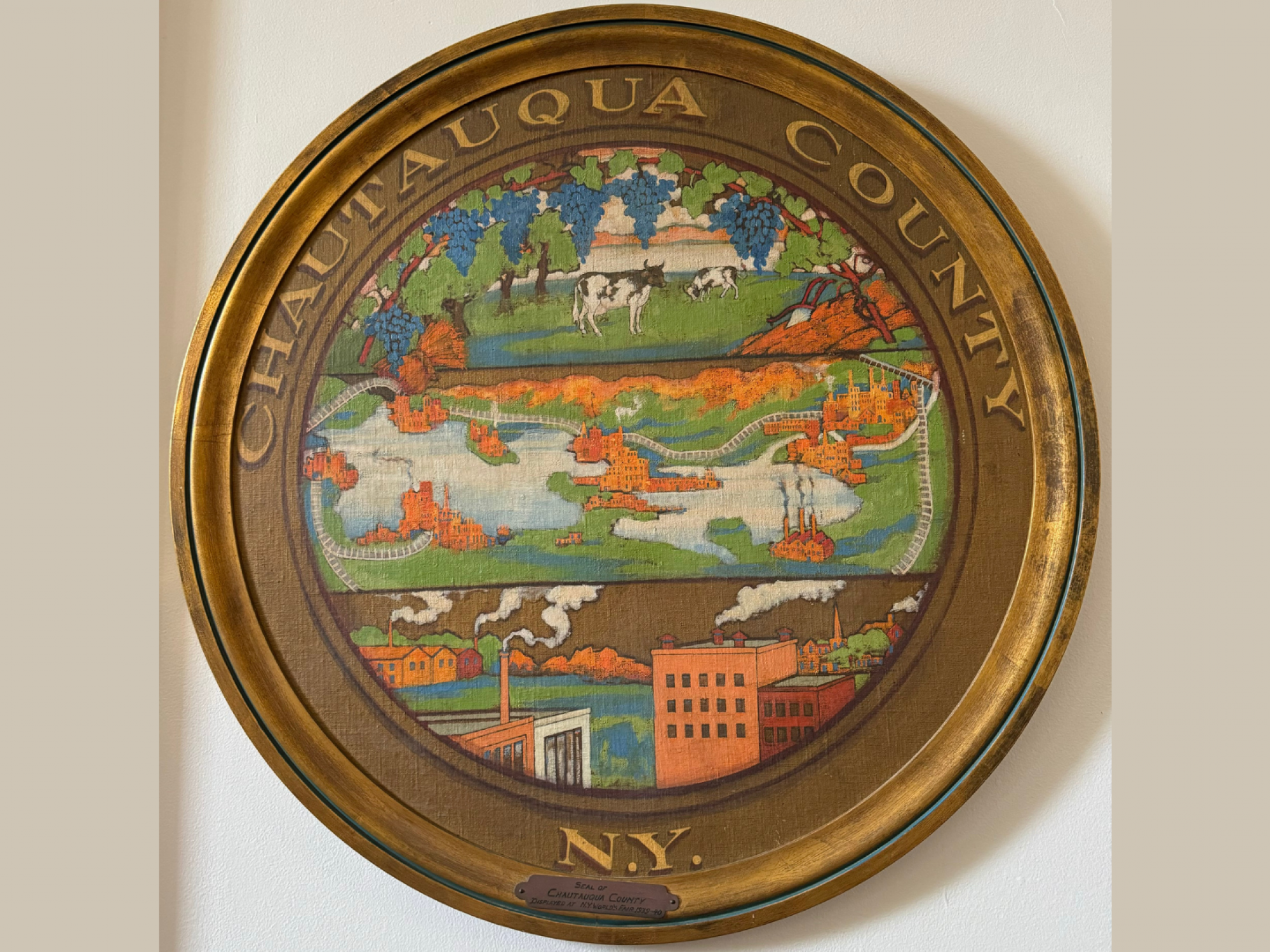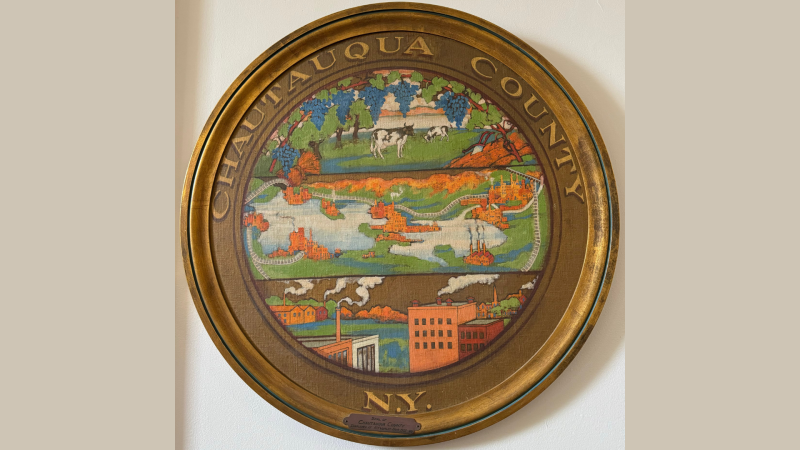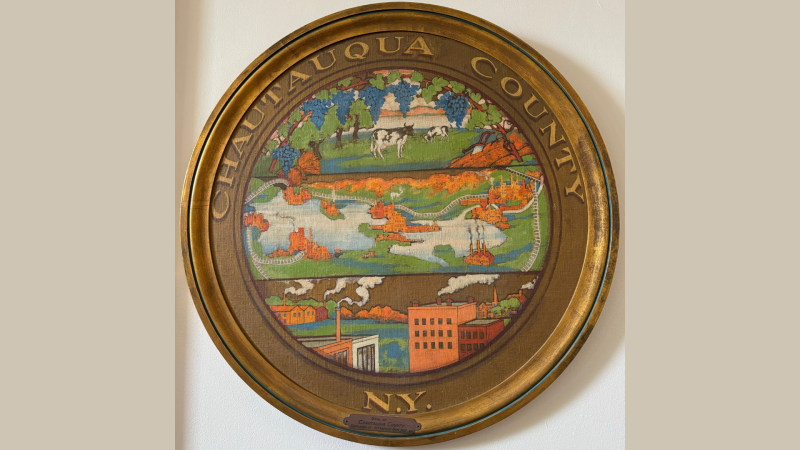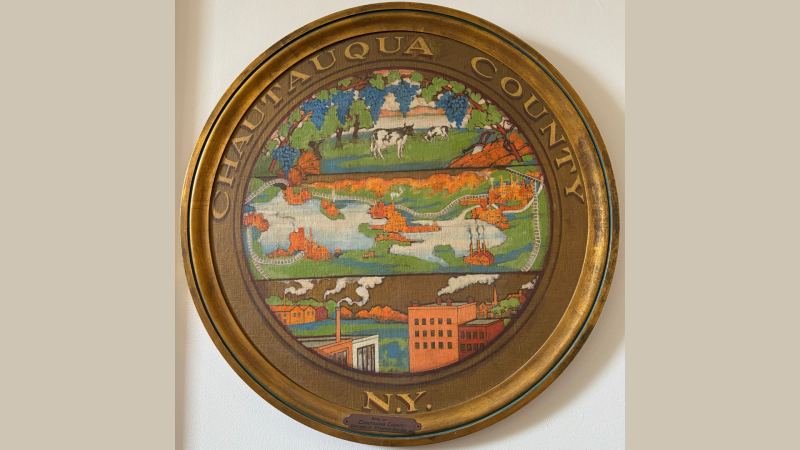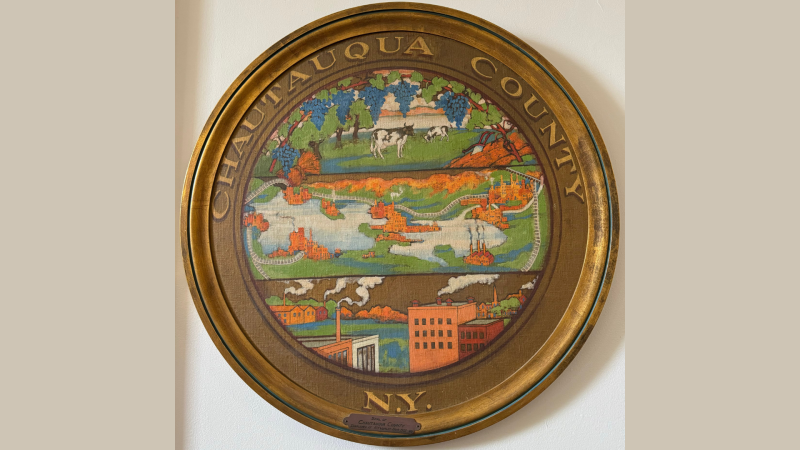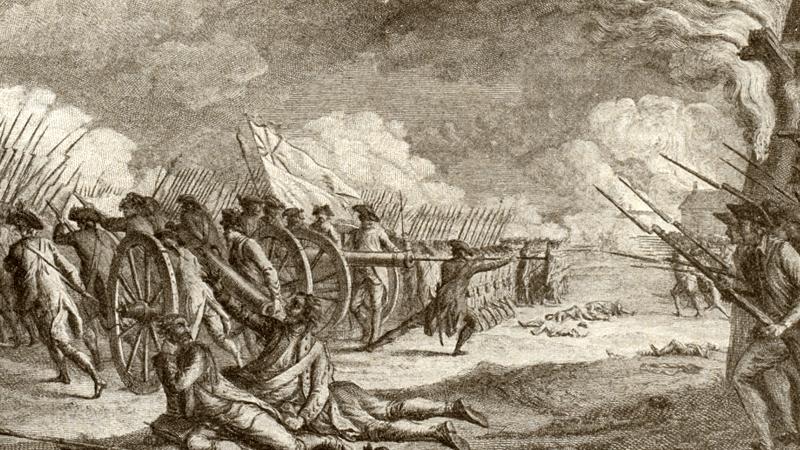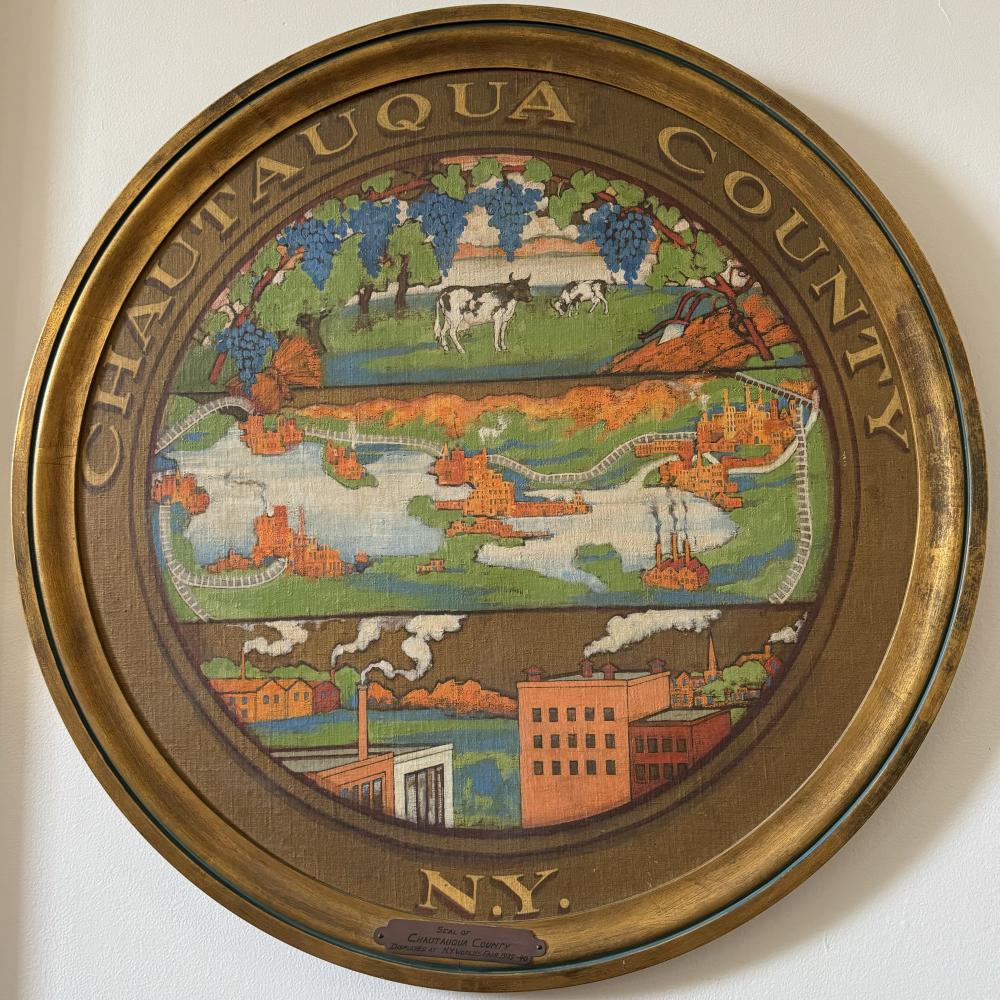
(Seal of Chautauqua County displayed at the New York World's Fair 1939-1940.)
Research by Norman Carlson, Chautauqua County Historian
This week in Chautauqua County’s history spans a mix of milestones, tragedies, and intriguing developments that reflect the area's evolving character over centuries. Here are some key events from December 15-21.
December 15
- 1873: Fredonia women took a stand against alcohol, marching to close saloons in a movement that would help birth the Women’s Christian Temperance Union, a pivotal force in the temperance movement nationwide.
- 1893: A tragic rail accident near Dunkirk claimed five lives, marking a somber chapter in local transportation history.
- 1894: Busti witnessed the county's first unsolved murder—a chilling case involving Laura White Shearman and her daughter, Cynthia Shearman Davis, on Winch Road.
- 1922: Jamestown's first Church of God congregation was organized, affiliating with the Anderson, Indiana movement.
- 1933: The Leisure Time School for unemployed girls concluded its first semester, laying the groundwork for what would become Jamestown Community College.
- 1947: Frewsburg consolidated its schools, forming the Frewsburg Central School District.
December 16
- 1786: An agreement between New York and Massachusetts settled territorial claims over western New York, a significant step in shaping the region's governance and land rights.
- 1970: Quality Markets opened in the Chautauqua Mall, marking a new era of retail convenience.
- 2003: The North Main Exit Mall in Ellicott welcomed shoppers, adding to the area’s retail landscape.
December 17
- 1894: The Samuels Opera House, now known as the Lucille Ball Little Theater, opened in Jamestown, becoming a cornerstone of local cultural life.
- 1919: A predicted planetary convergence sparked end-of-world fears among some residents in Falconer—a curious example of early 20th-century celestial anxieties.
- 1924: A gas explosion in Hanover Center claimed the life of Town Supervisor Loren W. Stebbins.
- 1997: Authorities seized 11 pounds of cocaine near Jamestown, marking the area’s largest drug seizure at the time.
December 18
- 1936: Demolition began on the American Aristotype buildings in Jamestown, once a hub for pioneering photographic processes in the 1890s. The site now houses Heritage Park Nursing Home.
- 1961: Lakewood repealed its prohibition on dancing after midnight, signaling a shift in local cultural norms.
December 19
- 1856: The American Reformed Church was formed at Mina Corners, adding to the region’s spiritual diversity.
- 1873: Jamestown tested its first water system, an innovation primarily for fire protection that drew untreated water from the Outlet.
December 20
- 1946: Jamestown saw the activation of a U.S. Naval Reserve unit, which operated at the present site of Schutt’s Saw and Mower.
- 1957: The iconic steeple of Jamestown’s First Methodist Church, built in 1886, dramatically toppled from its perch.
December 21
- 1832: The Chautauqua County Poorhouse opened in Dewittville, with Jacob Lockwood, a mentally ill individual and former wool mill operator, becoming its first inmate.
- 1933: Chautauqua Institution, a pillar of intellectual and cultural life, faced financial hardship and went into receivership.
- 1970: The Busti Shamrocks 4-H approached the Busti Town Board with a proposal to restore the historic Busti Mill, underscoring the community’s commitment to preserving its heritage.
From strides in education and faith to heartbreaking tragedies and pivotal agreements, this week’s history highlights Chautauqua County’s resilience and dynamic spirit. These events continue to shape the community's identity and inspire reflections on its past.

